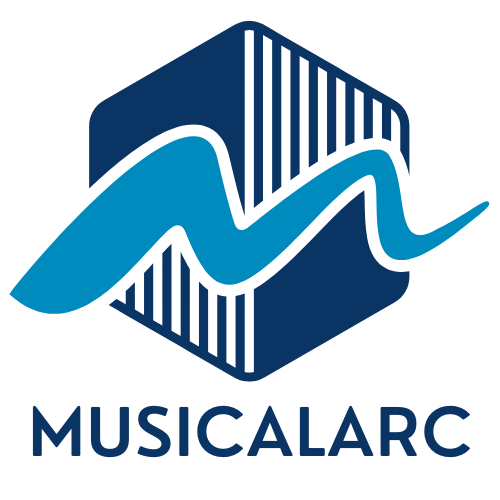In a world filled with endless possibilities, career exploration can feel like navigating a maze with a blindfold on. It’s easy to get lost among the myriad of options, from the traditional 9-to-5 grind to the quirky gig economy. But fear not, aspiring professionals! Discovering the right career path doesn’t have to be a daunting task.
Table of Contents
ToggleUnderstanding Career Exploration
Career exploration involves evaluating options to determine the most suitable professional path. This process helps individuals make informed decisions, leading to fulfilling career choices.
Definition and Importance
Career exploration refers to the process of studying various careers to identify interests and skills. Engaging in this process fosters self-awareness and empowers individuals to align their strengths with suitable roles. Understanding different fields helps clarify career aspirations. Research indicates that early exploration correlates with higher job satisfaction and long-term success.
Process of Career Exploration
The career exploration process typically comprises multiple stages. First, self-assessment aids in recognizing personal strengths, weaknesses, passions, and values. Next, gathering information on various careers expands knowledge of opportunities. Networking with professionals provides firsthand insights and experiences. Additionally, internships or volunteer experiences offer practical exposure to fields of interest. As one evaluates these factors, it becomes easier to make informed decisions about future careers.
Tools for Career Exploration

Various tools can help individuals navigate their career exploration journey. Utilizing available resources enhances understanding of different professions and aligns them with personal skills and interests.
Online Resources
Numerous online platforms offer valuable information about careers. Websites like O*NET Online provide insights into job descriptions, required skills, and salary data. Others, like LinkedIn and Glassdoor, connect users with industry professionals and include company reviews. These resources simplify networking and mentorship opportunities. CareerOneStop, backed by the U.S. Department of Labor, offers tools for exploring different career paths and educational requirements. Leveraging these online resources fosters informed decision-making regarding future careers.
Assessment Tools
Several assessment tools facilitate self-evaluation during career exploration. Tools like the Myers-Briggs Type Indicator and the Holland Code assist individuals in identifying personality traits and suitable career matches. Assessments often include skills inventories to highlight strengths and weaknesses. Websites provide free career quizzes, helping guide users toward compatible professions. Utilizing these assessment tools equips individuals with a clearer understanding of their preferences and capabilities, making the career selection process more manageable.
Stages of Career Exploration
Career exploration consists of several key stages, each vital for guiding individuals toward fulfilling career choices.
Self-Assessment
Self-assessment serves as the foundation for successful career exploration. Individuals reflect on their interests, strengths, skills, and values. Identifying these personal attributes helps highlight potential career paths. Assessment tools like the Myers-Briggs Type Indicator or the Holland Code guide this process. By understanding oneself, one can make more informed decisions about their professional future.
Researching Career Options
Researching career options follows self-assessment. This stage involves gathering information about various professions and industry trends. Resources like O*NET Online and Glassdoor provide insight into job roles, required qualifications, and salary ranges. Individuals can explore job descriptions and company reviews, enabling them to visualize potential career paths. Thorough research equips individuals with the knowledge necessary to align personal interests with suitable careers.
Networking and Informational Interviews
Networking and informational interviews are crucial next steps. Building connections with professionals provides real-world insights into specific careers. Engaging in conversations allows individuals to discuss daily responsibilities, required skills, and industry demands. It’s essential to reach out to contacts via platforms like LinkedIn to facilitate these discussions. This interaction not only broadens understanding but also opens doors to potential opportunities.
Challenges in Career Exploration
Navigating career exploration presents unique challenges. Individuals often face uncertainty, making the process feel daunting.
Overcoming Uncertainty
Uncertainty often leads to confusion about career paths. Individuals may struggle to identify what aligns with their skills and passions. Assessing options sometimes feels overwhelming due to the vast number of choices available. To address this, self-assessment becomes crucial. Tools like personality assessments help clarify interests and strengths. Gaining insights through networking can also reduce feelings of uncertainty. Engaging in conversations with professionals offers a clearer picture of different roles. As individuals gather information, they build confidence in their decisions, enabling effective navigation of potential career paths.
Addressing Limited Resources
Limited resources can hinder effective exploration. Many individuals lack access to comprehensive information about careers. Without guidance, individuals may miss out on opportunities that align with their skills. Budget constraints often restrict participation in workshops or career coaching sessions. Utilizing free online resources helps mitigate this issue. Websites like O*NET Online and LinkedIn provide valuable data on job roles and requirements. Local libraries frequently offer career exploration tools and workshops. By leveraging available resources, individuals can enhance their understanding and make informed decisions despite limitations. Prioritizing exploration strategies allows individuals to maximize their potential for success.
Career exploration is a vital journey that empowers individuals to navigate the complexities of the job market. By embracing self-assessment and utilizing available resources, they can uncover paths that align with their interests and strengths. Networking and gaining practical experience further enhance this process, providing invaluable insights into various careers.
While challenges may arise, staying proactive and informed can significantly ease the journey. With the right tools and strategies, individuals can transform uncertainty into clarity. Ultimately, a thoughtful approach to career exploration leads to fulfilling and successful professional lives.




